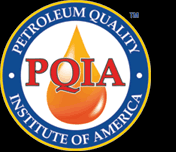
The Petroleum Quality Institute of America
The independent resource for information and insights on the quality and performance of lubricants in the marketplace.

PRESS RELEASE
![]()
FOR IMMEDIATE RELEASE
METUCHEN, NJ -- PQIA Issues Consumer Alerts on Two Motor Oils in Chicago Market
|
The Petroleum Quality Institute of America (PQIA) issues Consumer Alerts on Super XXX 10W30 and Liberty Gold Plus SMO 10W-40 Motor Oil. Test results show these brands of motor oil can cause damage to car engines.
The Petroleum Quality Institute of America (PQIA) has been
sampling motor oils in the USA for several years, having
them analyzed and publishing the results on their website (www.pqiamerica.org).
The organization recently tested Super XXX 10W30 and
Liberty Gold Plus SMO 10W-40 Motor Oil it purchased
at convenience stores in the Chicago market, and PQIA says
the results were “shocking.”
The Super XXX 10W30, and Liberty Gold Plus SMO
10W-40 samples tested have very serious deficiencies and
it starts with the viscosity, or thickness of the oil. The
viscosity of these products is close to 75% below where they
should be to meet specifications. This means they are much
too thin to adequately prevent metal-to-metal contact of
moving parts and that results in excessive wear and
premature engine failure. And for those unfamiliar with what
viscosity means, if you shake a bottle of these products the
sound you hear will speak volumes. That because the product
in the bottle will sound more like water than they do oil.
See video.
Whereas the PQIA feels the extraordinarily low viscosities
of these brands alone is enough to warrant consumer alerts,
other test data also indicate use of these products can
cause damage to car engines. The silicon levels in each of
these brands are also very high. Silicon is typically
associated with abrasive contamination when found in engine
oil. Further, both brands lack any meaningful level of
additives required by car manufacturers to protect engines
from wear, sludge, and rust.
In addition to what’s in the bottles, PQIA says the labels
on the bottles of these brands also provide evidence of
their harmful nature. The label on the back of the SuperXXX
for example says, "It is designed for use in older model
automobiles requiring SB specifications and where economy is
a major consideration." But what it fails to say is that the
API Service Classification SB was designed for vehicles
manufactured between 1930 and 1963. Further, SB oils are
deemed by the API to be "obsolete" and the API says they
"can cause equipment harm." Whereas the sample of Liberty
Gold shows it too lacks any meaning level of additives to
protect engines, its label provides no reference to any
performance specifications. Consumers are buying blind with
this one.
PQIA cautions that it has observed these brands in
convenience stores in the Chicago market and in other
mid-west cities and states.
ABOUT PQIA PQIA is an independent resource for information and insights on the quality of lubricants in the marketplace. The company serves the consumer of lubricants by testing and reporting on the quality and integrity of lubricants in the marketplace and then reporting and making this information readily available to all interested parties. PQIA’s Advisory Board comprises leading professionals with prominence in a broad range of fields related to the lubricants business. The AB provides guidance, advice, and recommendations to PQIA’s management to ensure a fair, equitable, rigorous, transparent, and unbiased approach in the manner in which PQIA carries out its mission. Biographies of all members of PQIA’s Advisory Board are available at PQIA Advisory Board
Contact: Thomas F. Glenn Petroleum Quality Institute of America Phone: 732-910-0017 E-mail: tglenn@pqia.org
|